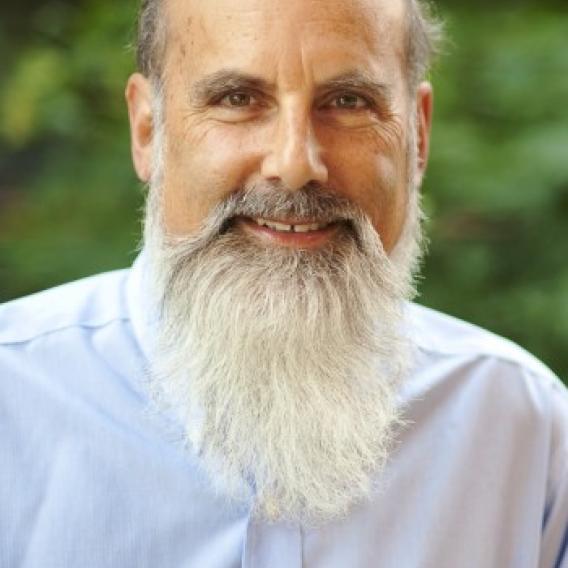Image

Matthew P. Scott
Emeritus Faculty, Acad Council, Developmental Biology
Member, Bio-X
Member, Maternal & Child Health Research Institute (MCHRI)
Member, Wu Tsai Neurosciences Institute
Ph.D., M.I.T., Biology (1980)
B.S., M.I.T., Biology (1975)
Affiliation:
Committee:
Dr. Scott is Emeritus President of the Carnegie Institution for Science (carnegiescience.edu), and is emeritus at Stanford. The Scott lab's research was aimed at learning fundamental molecular mechanisms of development, including gene regulation and cell-cell signaling. He also studied the formation and function of brain circuitry. He worked with cultured cells, Drosophila, and mice to investigate how normal embryos grow and what goes wrong in birth defects, cancer, and neurodegenerative disease. A major goal was to identify and explore new genes and proteins that control development. The lab group investigated the development of the nervous system, especially the cerebellum, using cell and tissue culture, genomics, and transgenic animals. Cells were grown on controlled and patterned surfaces to govern neurite outgrowth. To investigate signal transduction between and within cells, the group studied regulators that control cell morphology and intracellular trafficking. Time-lapse video of engineered proteins was combined with genetic modifications that alter cell-cell signaling and the assembly and transport of organelles. Imaging and image processing were important tools. Collaborative engineering projects included the invention of an embryo sorting instrument and the development of new injection methods applicable to high-throughput screens of gene functions.
Dr. Scott did undergraduate and graduate work at M.I.T., with Prof. Mary Lou Pardue as his Ph.D. thesis advisor. He moved to Indiana University for his postdoctoral work as a Helen Hay Whitney fellow with Profs. Thomas Kaufman and Barry Polisky. He then set up his own lab at the University of Colorado, Boulder. Scott came to Stanford in 1990 to join the newly formed Department of Developmental Biology, and the Department of Genetics. His research focus is on genes that control development, and how damage to them leads to birth defects, cancer, and neurodegeneration. He discovered the "homeobox", an evolutionarily conserved component of many genes that control development. His lab group discovered the genetic basis of the most common human cancer, basal cell carcinoma, and of the most common childhood malignant brain tumor, medulloblastoma. He served as Associate Chair and Chair of the Department of Developmental Biology for a total of six years. He chaired the Bio-X program from 2001-2007. He is presently co-chair of the Center for Children's Brain Tumors. He has been recognized by election to the American Academy of Arts and Sciences, the National Academy of Sciences, and the National Institute of Medicine, and served as President of the Society for Developmental Biology. His awards include the Passano Award (1990), the Conklin Medal of the Society for Developmental Biology (2004), and the Pasarow Award in Cancer Research (2013). He is now at the Carnegie Institution for Science, based at Stanford and in Washington D.C., Baltimore, and Pasadena.
Dr. Scott is married to Margaret Fuller, who is Professor of Developmental Biology and Genetics at Stanford. Together with their children, they enjoy exploring wild places around the world by foot, on bicycles, and underwater. Dr. Scott spends a lot of time looking through cameras: matthewscottphotography.com.
Dr. Scott did undergraduate and graduate work at M.I.T., with Prof. Mary Lou Pardue as his Ph.D. thesis advisor. He moved to Indiana University for his postdoctoral work as a Helen Hay Whitney fellow with Profs. Thomas Kaufman and Barry Polisky. He then set up his own lab at the University of Colorado, Boulder. Scott came to Stanford in 1990 to join the newly formed Department of Developmental Biology, and the Department of Genetics. His research focus is on genes that control development, and how damage to them leads to birth defects, cancer, and neurodegeneration. He discovered the "homeobox", an evolutionarily conserved component of many genes that control development. His lab group discovered the genetic basis of the most common human cancer, basal cell carcinoma, and of the most common childhood malignant brain tumor, medulloblastoma. He served as Associate Chair and Chair of the Department of Developmental Biology for a total of six years. He chaired the Bio-X program from 2001-2007. He is presently co-chair of the Center for Children's Brain Tumors. He has been recognized by election to the American Academy of Arts and Sciences, the National Academy of Sciences, and the National Institute of Medicine, and served as President of the Society for Developmental Biology. His awards include the Passano Award (1990), the Conklin Medal of the Society for Developmental Biology (2004), and the Pasarow Award in Cancer Research (2013). He is now at the Carnegie Institution for Science, based at Stanford and in Washington D.C., Baltimore, and Pasadena.
Dr. Scott is married to Margaret Fuller, who is Professor of Developmental Biology and Genetics at Stanford. Together with their children, they enjoy exploring wild places around the world by foot, on bicycles, and underwater. Dr. Scott spends a lot of time looking through cameras: matthewscottphotography.com.